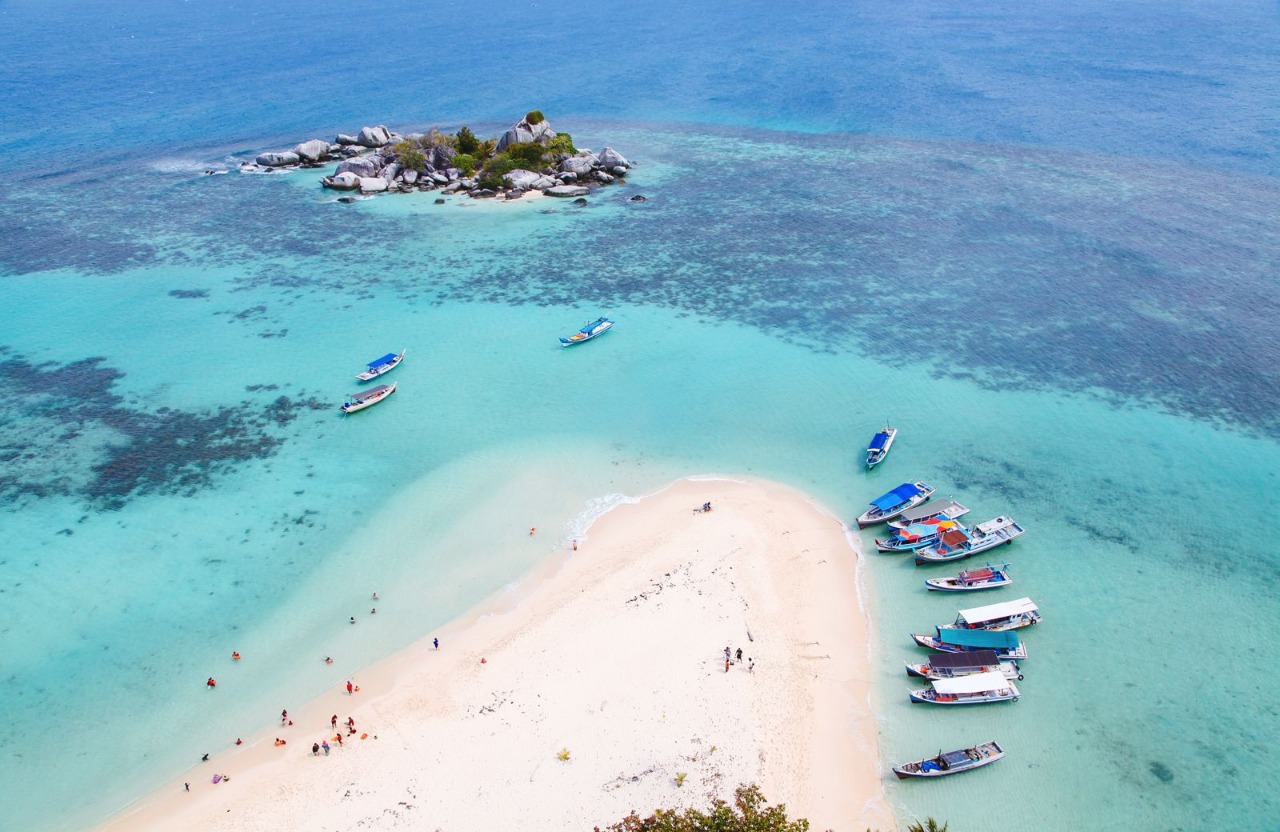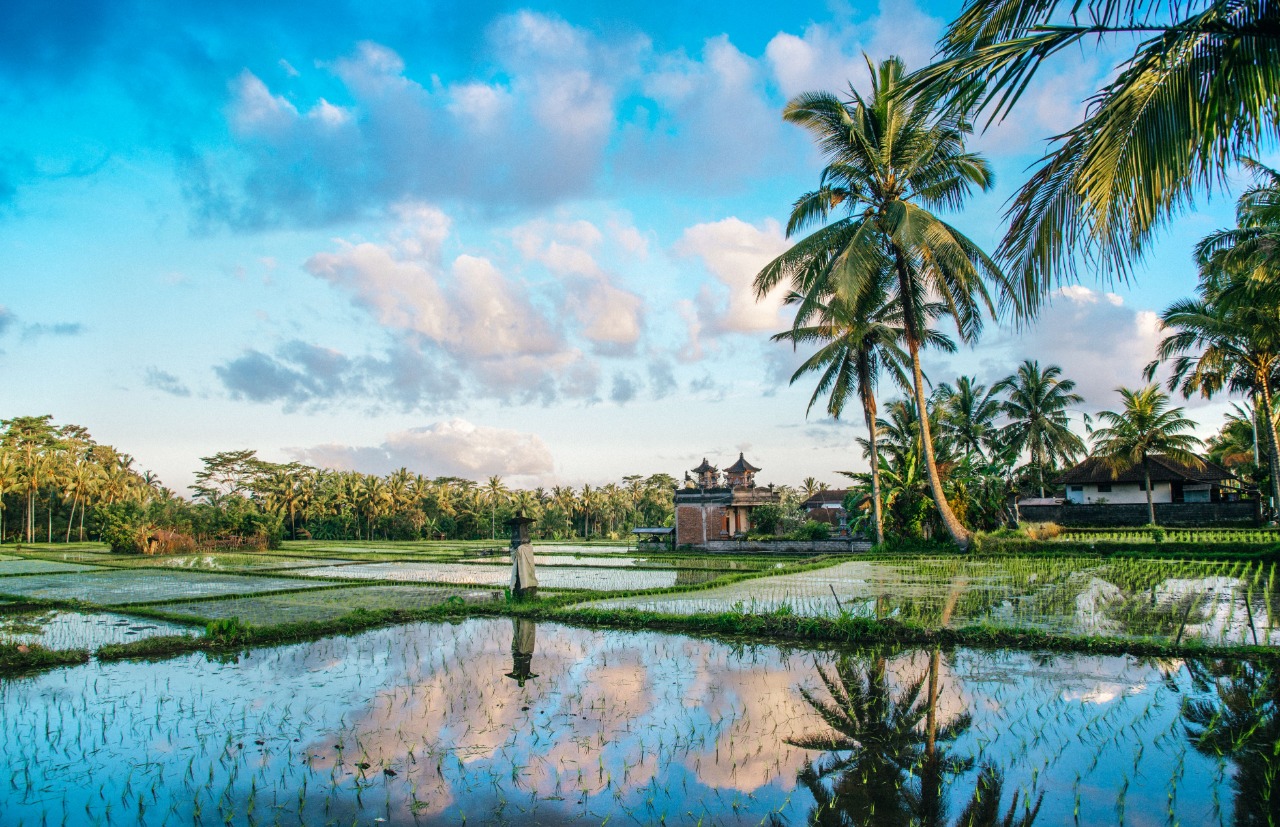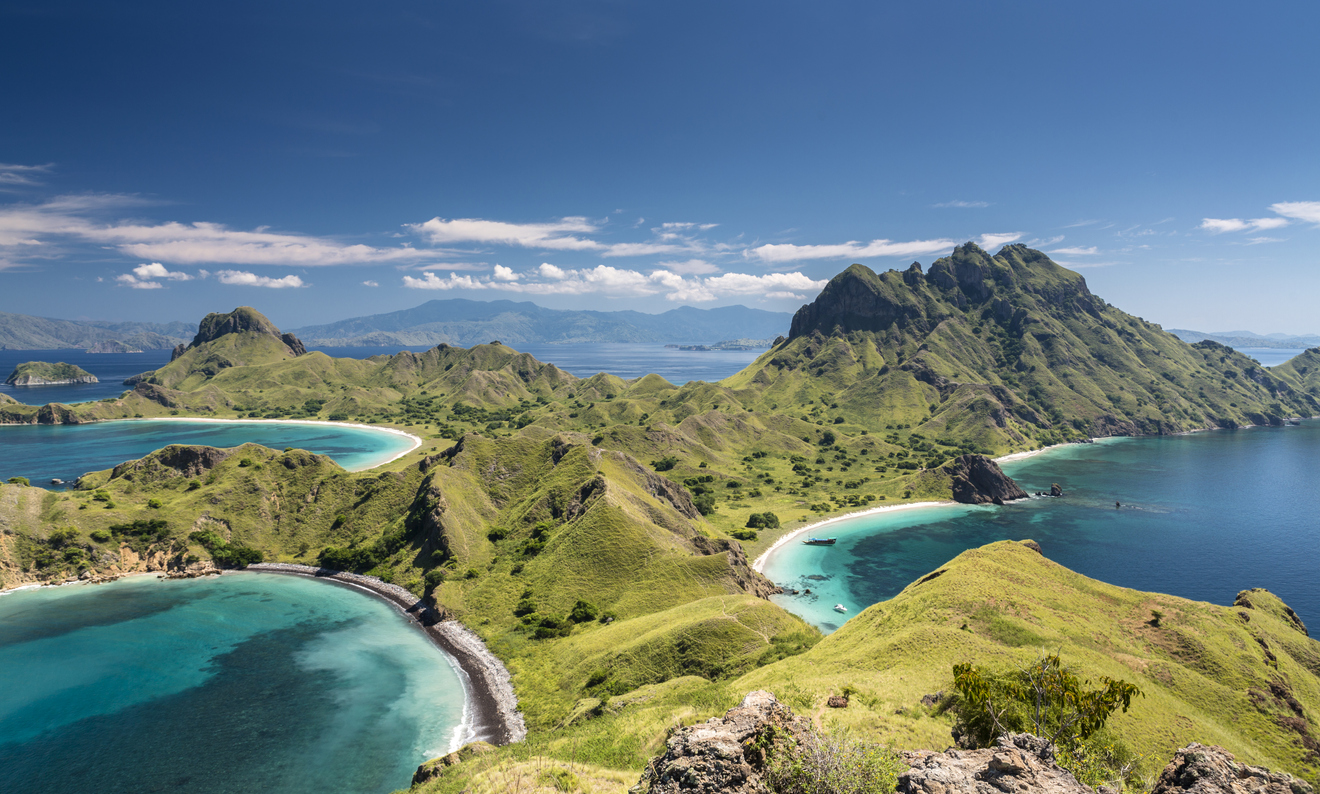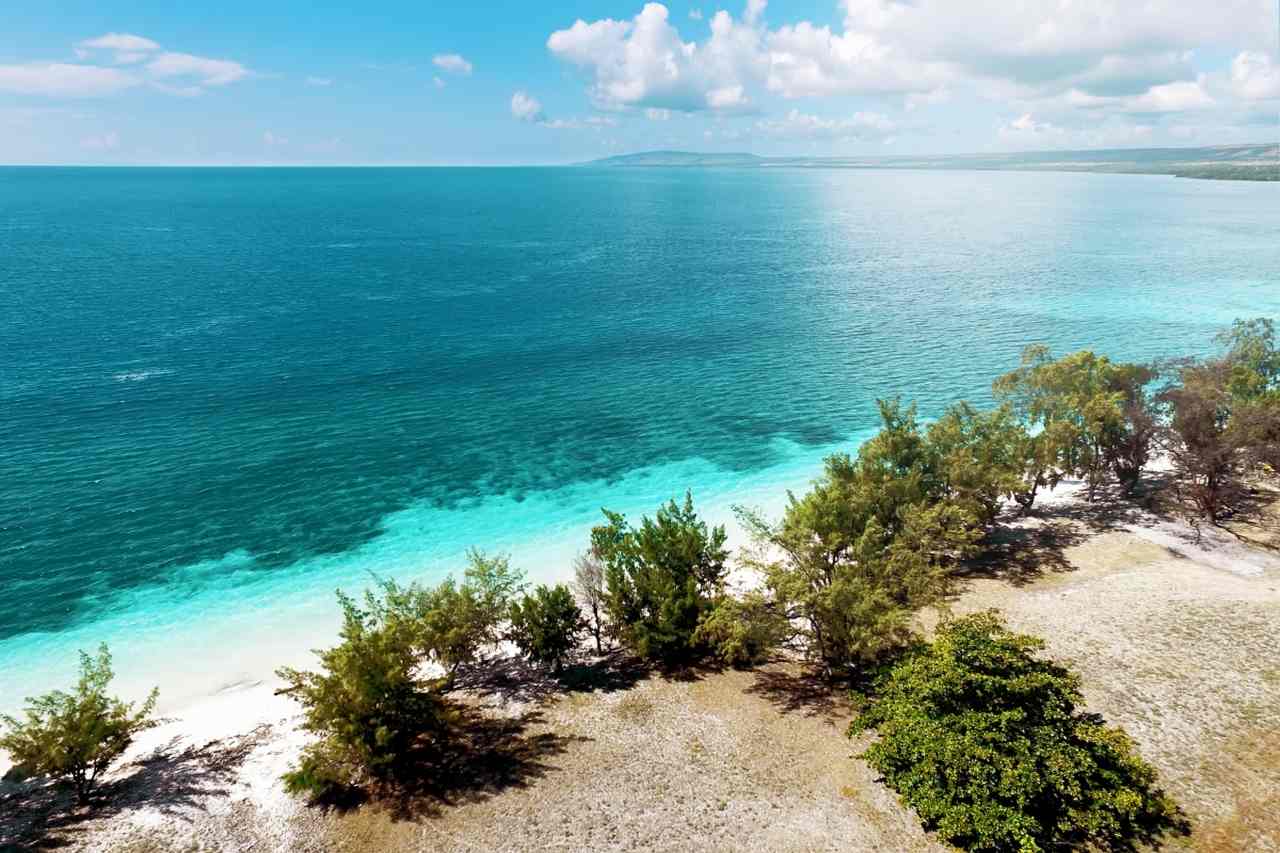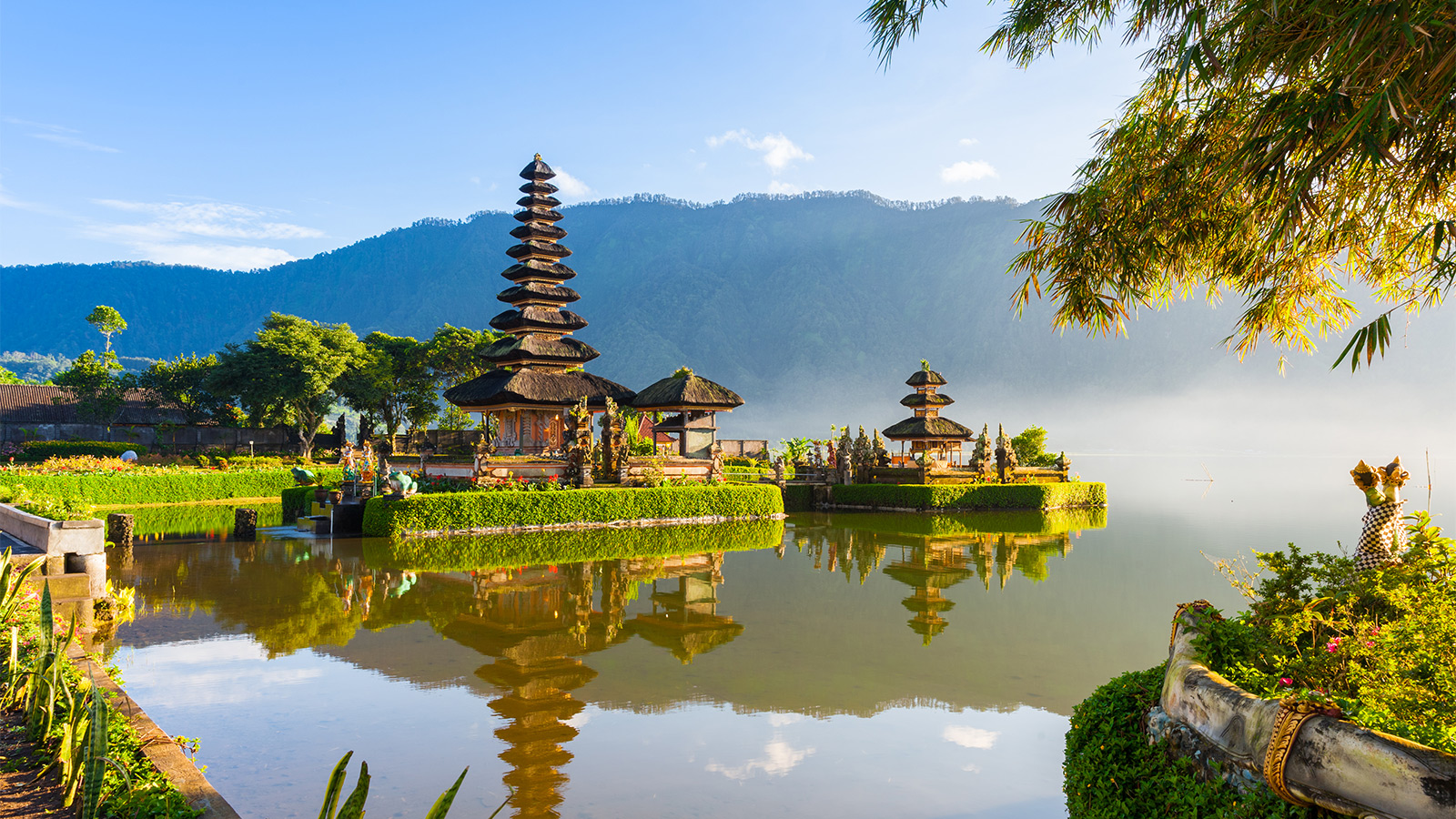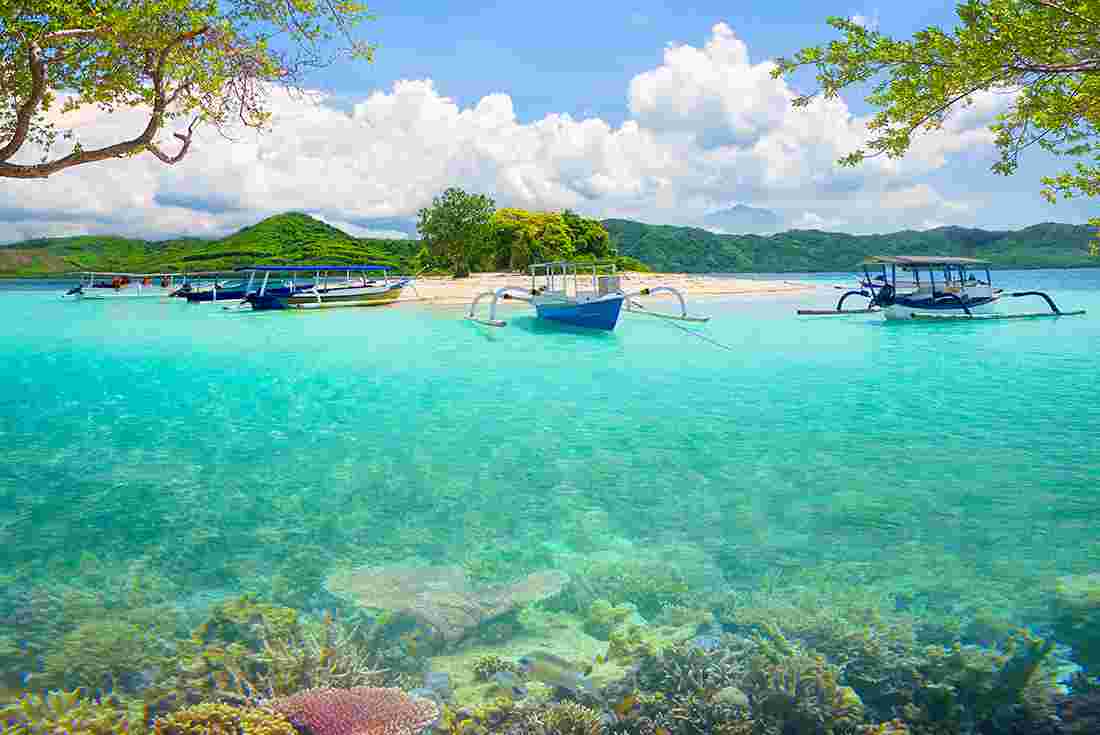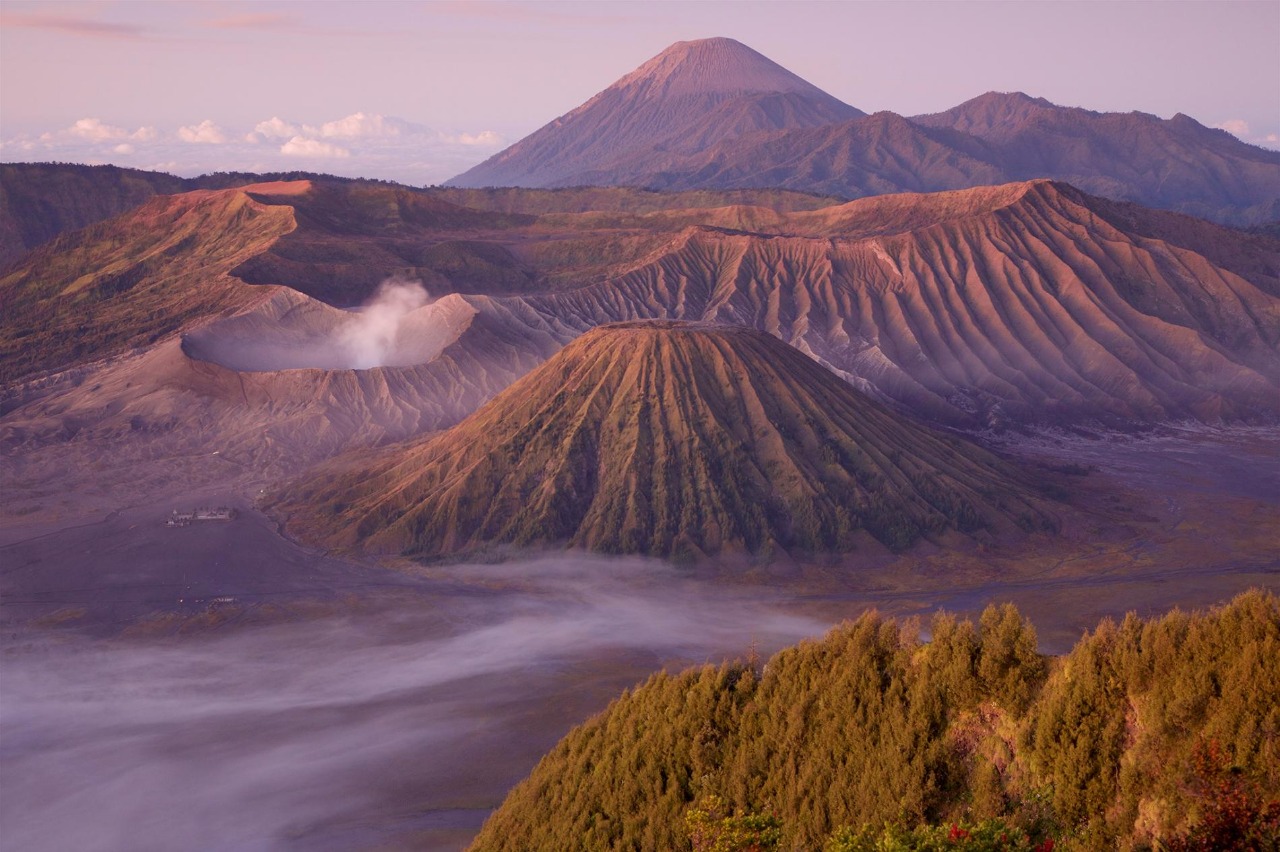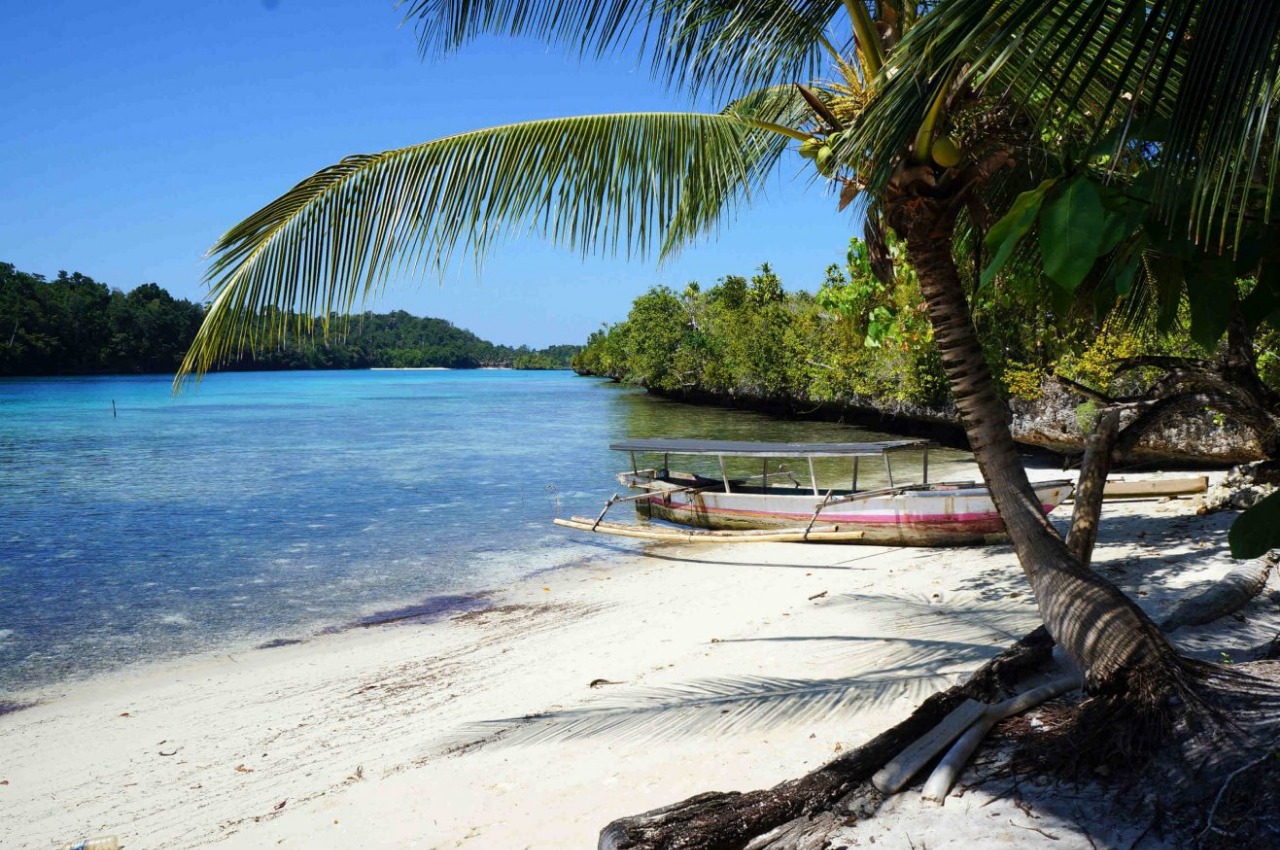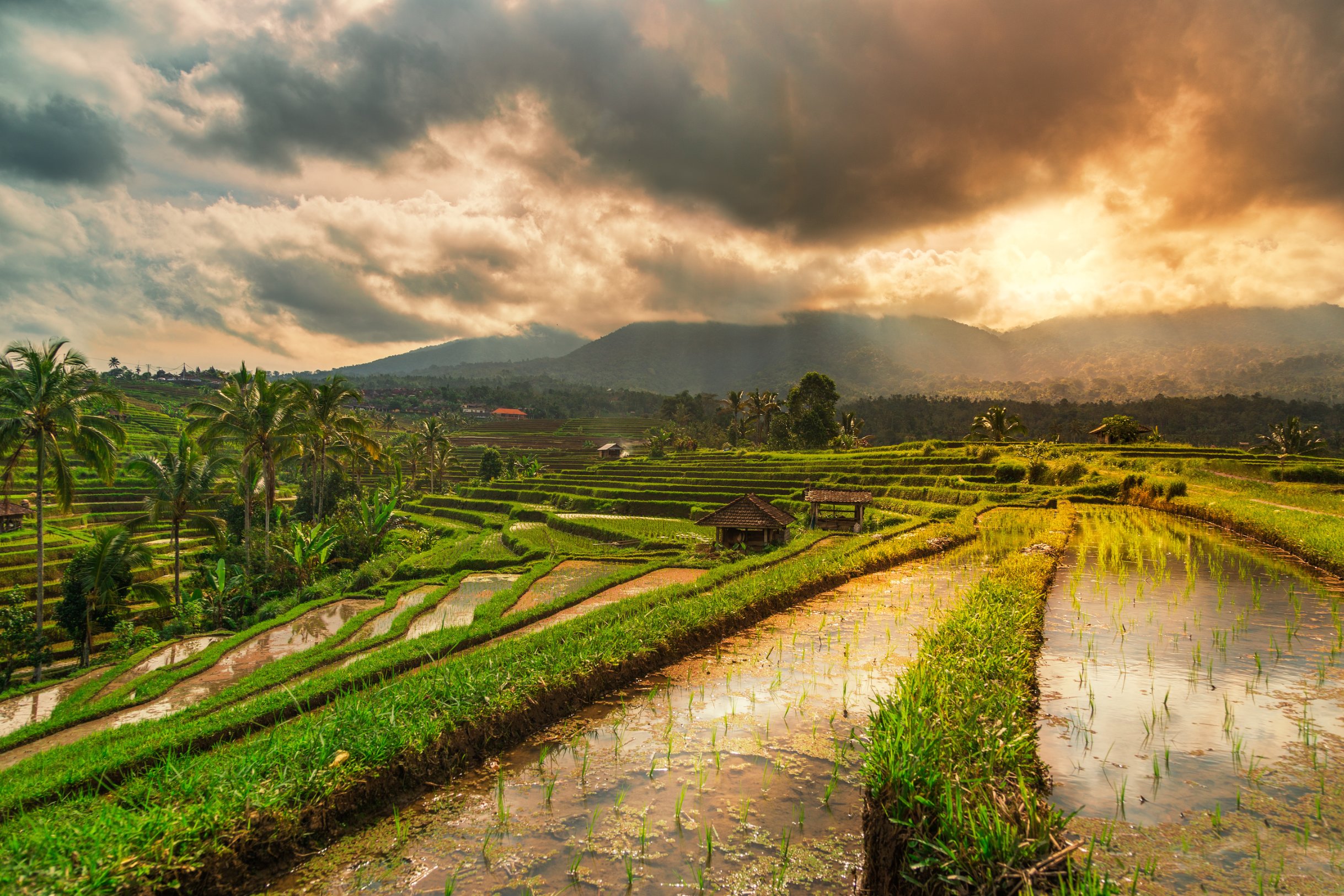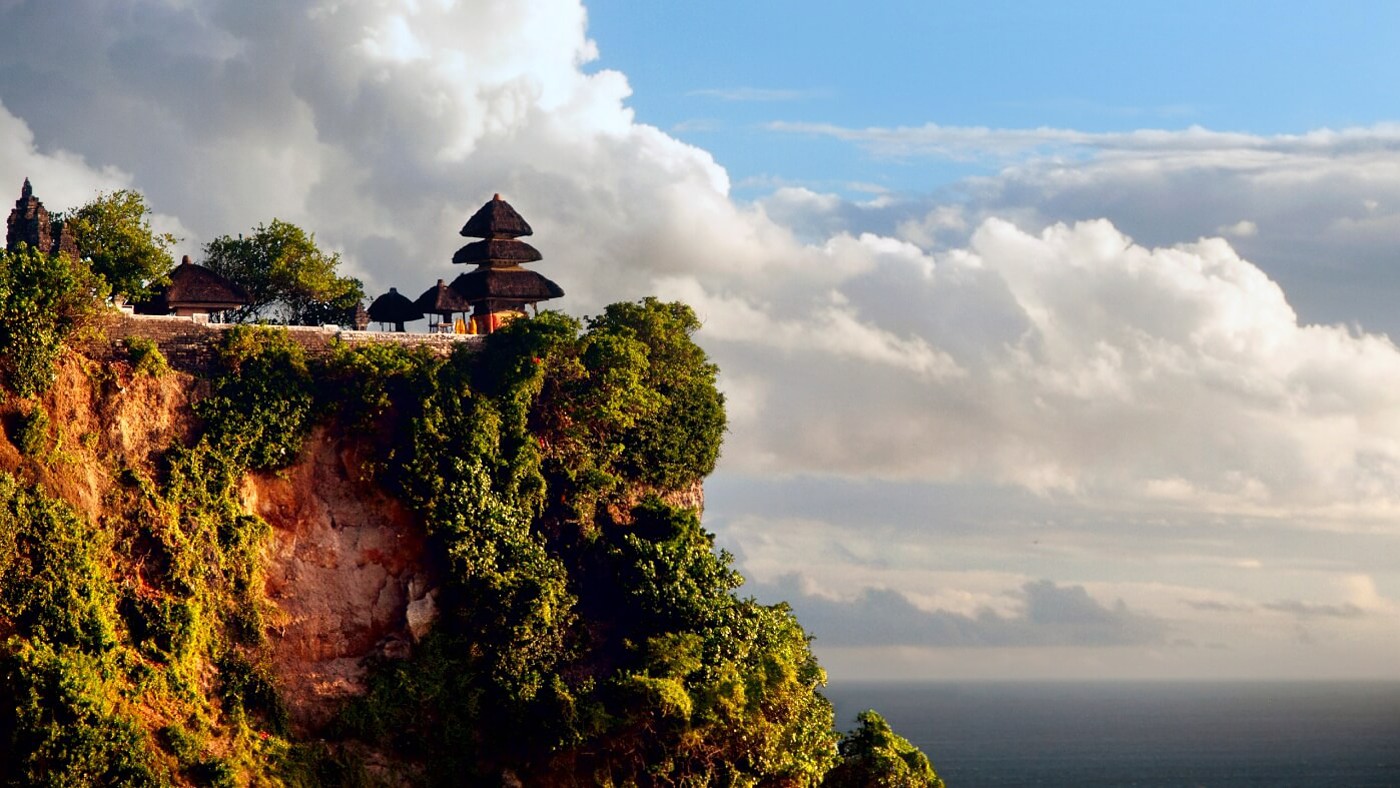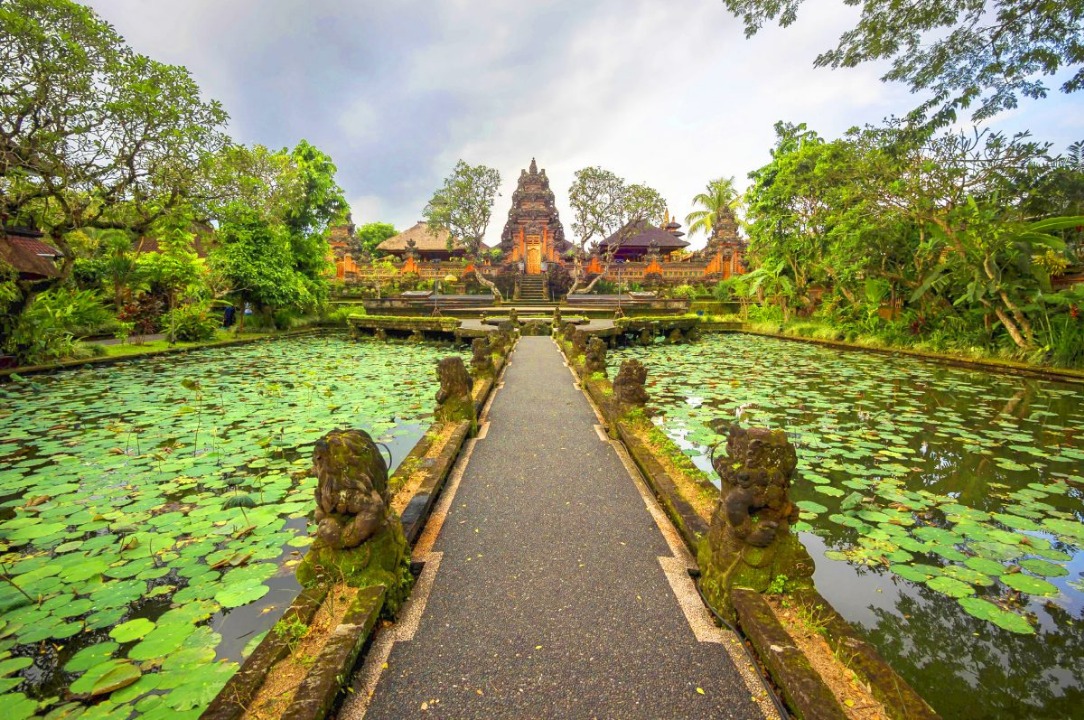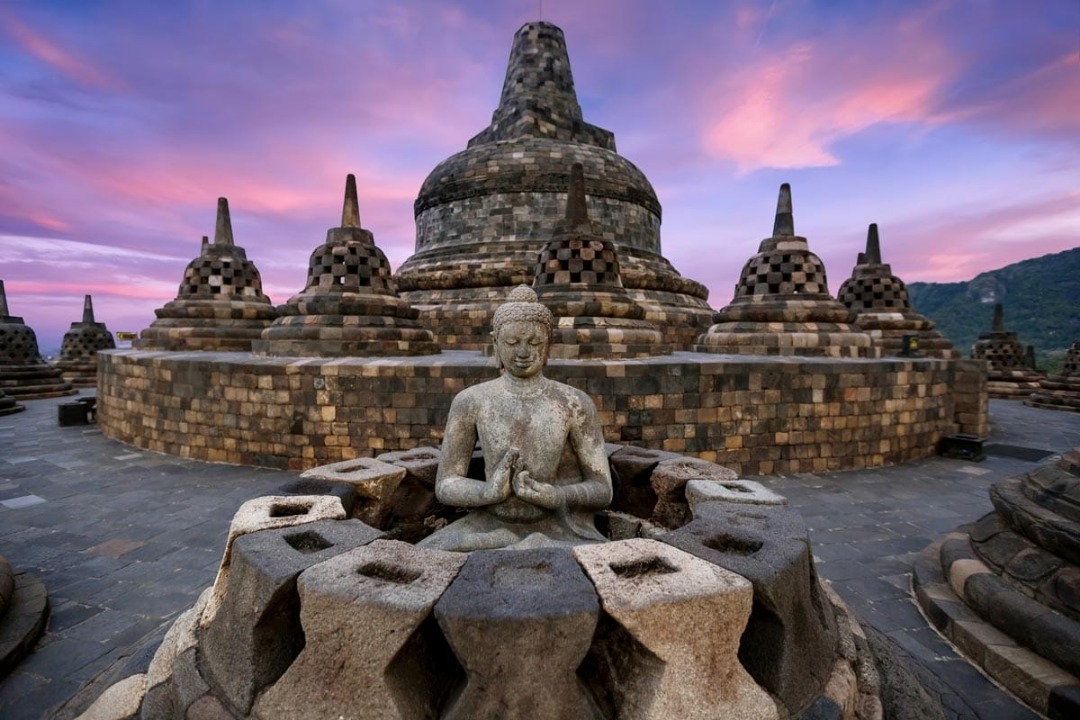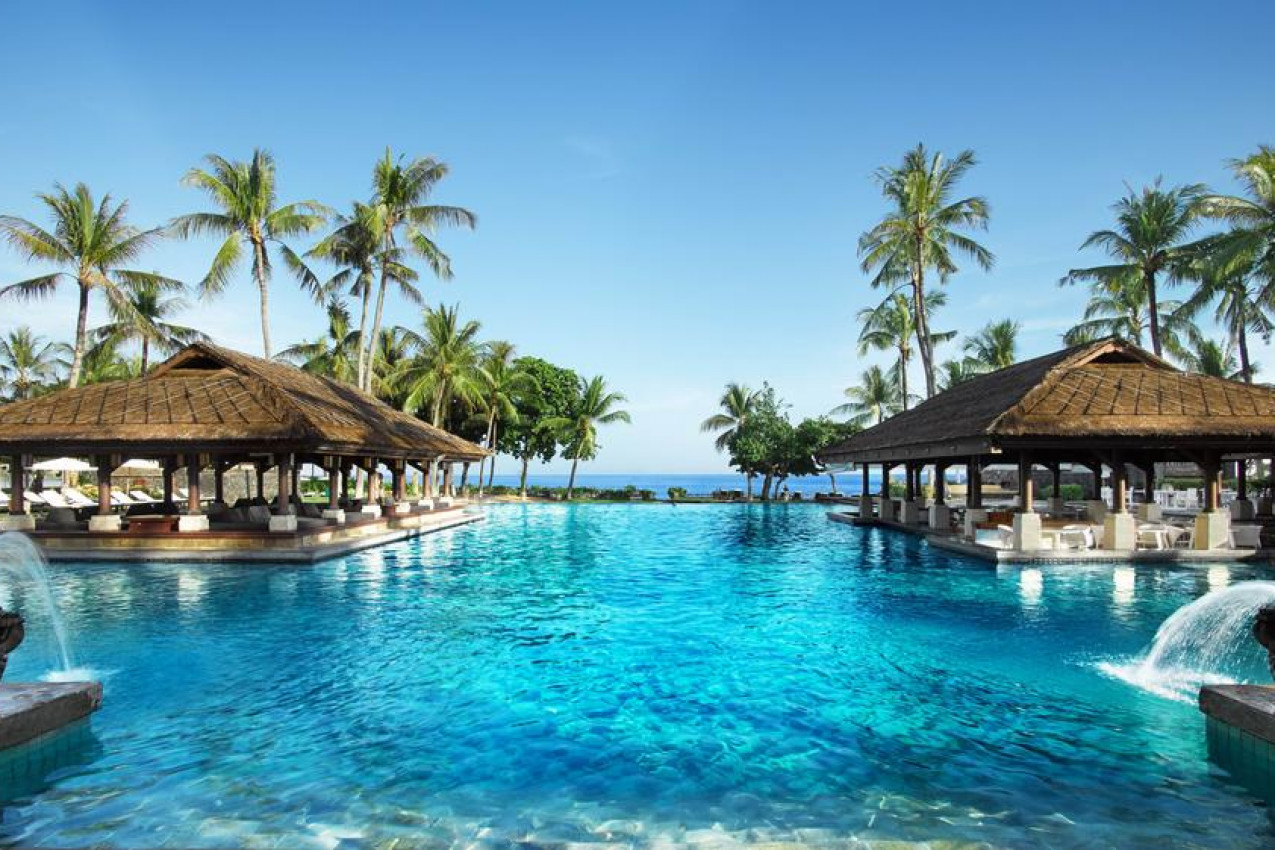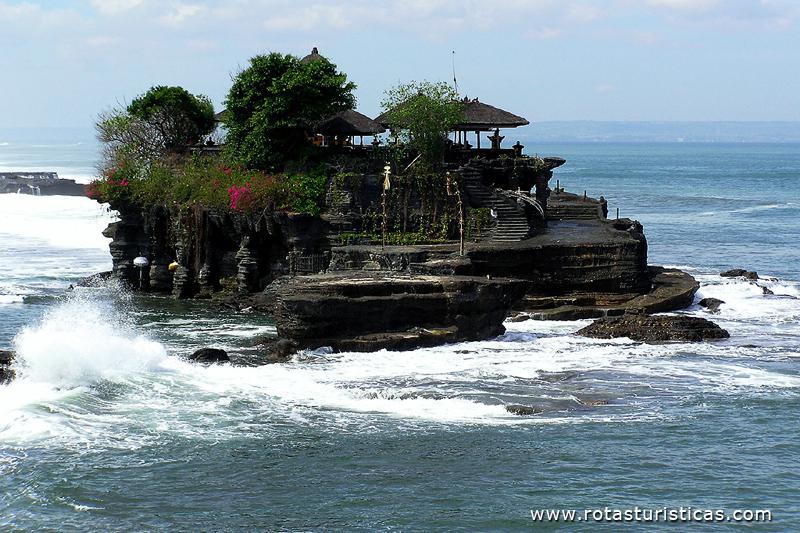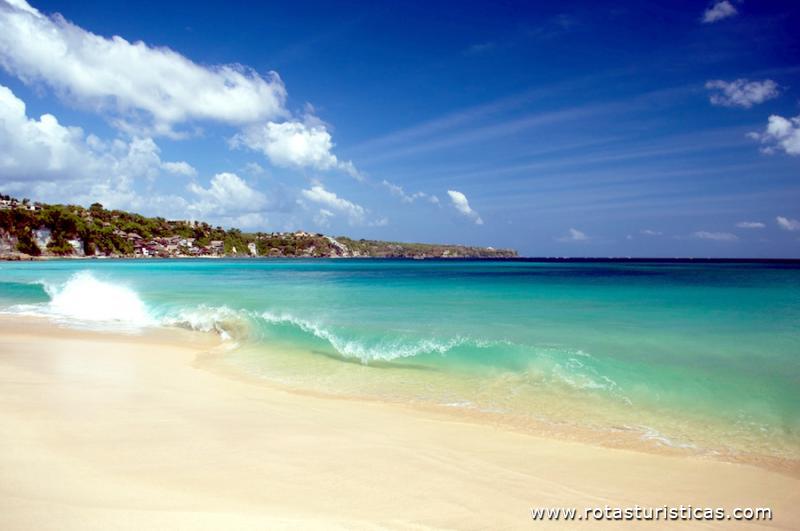Pictures of: Indonesia
Location map
Airports
Hotels and other Accommodation
What to visit
Where to Eat
Consulates & Embassies
World Nomads
The Travel Insurance with the largest coverage

The Travel Insurance with the largest coverage

Indonesia
The Republic of Indonesia is a large country located between Southeast Asia and Australia which is made up of the largest archipelago in the world, the Sunda Islands, and the western half of New Guinea. It has land borders with Malaysia, in Borneo, with East Timor, and with Papua New Guinea; and maritime with the Philippines, Malaysia, Singapore, Palau, Australia and with the Indian state of Andaman and Nicobar. The location between two continents, Asia and Oceania, makes Indonesia a transcontinental nation.
More extensive archipelago of the planet with 17 thousand islands, less than a third of them inhabited, Indonesia is full of unusual contradictions. To begin with, the landscapes of the eastern region, bordering Papua New Guinea, resemble Oceania much more than the rest of Asia: they shelter even kangaroos. On the other hand, the west, neighboring Malaysia, has a super-Asian look: tropical forests with tigers and elephants.
Its capital is Jakarta.
More extensive archipelago of the planet with 17 thousand islands, less than a third of them inhabited, Indonesia is full of unusual contradictions. To begin with, the landscapes of the eastern region, bordering Papua New Guinea, resemble Oceania much more than the rest of Asia: they shelter even kangaroos. On the other hand, the west, neighboring Malaysia, has a super-Asian look: tropical forests with tigers and elephants.
Its capital is Jakarta.
Official language
Indonesian Bahasa
Currency
Rupee
Documentation
All foreign nationals need a visa to enter Indonesian territory, and must be a passport holder with a validity of more than 6 months. It is absolutely necessary passport valid for 6 months from the date of departure from Indonesia. You may be denied entry into the plane to leave, and any other entry point if the passport does not have this validity.
Visas are required to enter the country as a visa, which can be requested from an Indonesian Embassy or Consular Services in the country of residence of the visitor (where it can be applied for 60 days), or on arrival at the main ports and airports of the country (cases where it is only seen for 30 days).
Visas are required to enter the country as a visa, which can be requested from an Indonesian Embassy or Consular Services in the country of residence of the visitor (where it can be applied for 60 days), or on arrival at the main ports and airports of the country (cases where it is only seen for 30 days).
Tourism
Indonesia's location makes it a transcontinental nation because it is located between two continents, Asia and Oceania. Across the country is very hot and at nightfall tourists take to the streets in search of excitement in the bars and restaurants near the hotels.
The capital Jakarta is a bustling city with many modern buildings and historical monuments such as the Semanggi Bridge, built in the center of the city. Around the Bridge you can visit the Orchid Garden, the Indonesian Bazaar and the Military Museum as well as numerous Western-style warehouses, shops and restaurants. The island of Java is one of the most visited, a region replete with rare species of wild animals, palaces and temples besides many natural beauties. In the east of Java is the well-known and populous Island of Bali where it is possible to know a little of the local culture, with many ceremonies and festivals characterized with songs and popular dances. The island is also known for treating its visitors with warmth. It takes a lot of energy and a willingness to explore this ecological corner, where the imaginary line of Ecuador passes. In fact, the place challenges the imagination.
The capital Jakarta is a bustling city with many modern buildings and historical monuments such as the Semanggi Bridge, built in the center of the city. Around the Bridge you can visit the Orchid Garden, the Indonesian Bazaar and the Military Museum as well as numerous Western-style warehouses, shops and restaurants. The island of Java is one of the most visited, a region replete with rare species of wild animals, palaces and temples besides many natural beauties. In the east of Java is the well-known and populous Island of Bali where it is possible to know a little of the local culture, with many ceremonies and festivals characterized with songs and popular dances. The island is also known for treating its visitors with warmth. It takes a lot of energy and a willingness to explore this ecological corner, where the imaginary line of Ecuador passes. In fact, the place challenges the imagination.
Gastronomy
Indian and Chinese influences are striking in Indonesian cuisine. Certain fusions gave rise to specific gastronomic traditions, as is the case of the culinaris nonya found in Singapore that results from the Malaysian traditions with that of immigrants of Chinese origin.
Indonesia is the country with the largest Muslim population in the world. This is why pork consumption is small and alcoholic beverages are scarce, unlike that of the Asian region. More iced tea and coconut water are consumed.
There are, however, a few beers and even a lightly sweet rosé wine made from Balinese rice, the bream. Besides these, there is also the arak and the tuak (another fermented drink).
Its dietary base is rice with varied sauces, both sweet and savory, present in hundreds of possible different dishes and combined
The chicken with rice is one of the most traditional dishes of the country, along with the lamb meat.
Other popular dishes are the satay with the peanut sauce, the cattle-cattle (steamed vegetables with peanut sauce) and the fried noodles and rice.
Peanut sauce, also called Sambal Kacang ("kacang" meaning "nut" in Malay native tongue) uses roasted fresh peanuts and looks great with Satay. This popular sauce, also known as Bumbu Satay, is also used as a gravy for Cattle-Gado.
There are many different variations of recipes for this peanut sauce, most of them involving the use of peanut butter and / or coconut milk, coriander or curry. Other ingredients used are coriander seeds, cumin seeds, kencur, lemongrass, etc.
Indonesia is the country with the largest Muslim population in the world. This is why pork consumption is small and alcoholic beverages are scarce, unlike that of the Asian region. More iced tea and coconut water are consumed.
There are, however, a few beers and even a lightly sweet rosé wine made from Balinese rice, the bream. Besides these, there is also the arak and the tuak (another fermented drink).
Its dietary base is rice with varied sauces, both sweet and savory, present in hundreds of possible different dishes and combined
The chicken with rice is one of the most traditional dishes of the country, along with the lamb meat.
Other popular dishes are the satay with the peanut sauce, the cattle-cattle (steamed vegetables with peanut sauce) and the fried noodles and rice.
Peanut sauce, also called Sambal Kacang ("kacang" meaning "nut" in Malay native tongue) uses roasted fresh peanuts and looks great with Satay. This popular sauce, also known as Bumbu Satay, is also used as a gravy for Cattle-Gado.
There are many different variations of recipes for this peanut sauce, most of them involving the use of peanut butter and / or coconut milk, coriander or curry. Other ingredients used are coriander seeds, cumin seeds, kencur, lemongrass, etc.
Weather
Indonesia's climate is almost entirely tropical. The uniformly warm waters that make up 81% of the Indonesian area ensure that land temperatures remain relatively constant, with the coastal plains averaging 28 ° C, the inland and mountain areas averaging 26 ° C, and the mountainous regions higher, 23 ° C. The temperature varies little from season to season, and Indonesia experiences relatively little change in the length of daylight hours from one season to the next, the difference between the longest day and the shortest day of the year is only 48 minutes. This allows the crops to be grown throughout the year.
Safety
Non-essential visits to areas where there are recent inter-ethnic violent conflicts of a religious or political nature, such as Aceh province on the island of Sumatra, parts of Kalimantan (Island of Borneo), areas of the Sulawesi Islands, and the Moluccas (especially the Ambon region), West Timor and West Papua.
Possession or trafficking in drugs are subject to harsh penalties, including death.
Cases of Indonesian and tourist deaths have been reported for poisoning from the consumption of artisanal alcoholic beverages, especially in Bali and Lombok.
Several areas of Indonesia are prone to natural disasters, particularly earthquakes. Travel to areas where there has been recent volcanic activity is not advisable.
Possession or trafficking in drugs are subject to harsh penalties, including death.
Cases of Indonesian and tourist deaths have been reported for poisoning from the consumption of artisanal alcoholic beverages, especially in Bali and Lombok.
Several areas of Indonesia are prone to natural disasters, particularly earthquakes. Travel to areas where there has been recent volcanic activity is not advisable.
Health care
There have been cases of malaria, dengue and other similar illnesses among tourists and resident expatriates, so it is recommended to have the vaccines up to date. It is recommended that all Portuguese who intend to travel to Indonesia to book a consultation of the traveler in Portugal.
The level of public health care is generally low. Malaria, with the exception of Jakarta and Bali, is widespread throughout the country. Dengue fever also occurs throughout the country, including in Jakarta. Preventive measures against typhus, tetanus, malaria, dengue and all types of hepatitis are recommended. There have been several outbreaks of rabies throughout the country. Tuberculosis is also a serious health problem and gastrointestinal problems are common.
Due to the outbreak of bird flu in South-East Asia, proper precautions are recommended. There have been cases of bird flu in several provinces of Indonesia (including the city of Jakarta and the island of Bali), not only in animals but also in humans. According to the World Health Organization (WHO), although there is no evidence that the disease is contagious among humans, it is feared a rapid mutation of the virus, which could cause an extremely dangerous epidemic. Travelers traveling to Indonesia are therefore advised to seek updated information on bird flu either through the WHO or through direct consultation with the respective embassies of their countries in Jakarta.
They are also advised to avoid places where there are birds or pigs (eg markets or farms), not eating poultry, pork or eggs poorly, washing hands frequently, or calling a doctor if they have flu symptoms headaches, muscle or joint aches and pains) or diarrhea.
The level of public health care is generally low. Malaria, with the exception of Jakarta and Bali, is widespread throughout the country. Dengue fever also occurs throughout the country, including in Jakarta. Preventive measures against typhus, tetanus, malaria, dengue and all types of hepatitis are recommended. There have been several outbreaks of rabies throughout the country. Tuberculosis is also a serious health problem and gastrointestinal problems are common.
Due to the outbreak of bird flu in South-East Asia, proper precautions are recommended. There have been cases of bird flu in several provinces of Indonesia (including the city of Jakarta and the island of Bali), not only in animals but also in humans. According to the World Health Organization (WHO), although there is no evidence that the disease is contagious among humans, it is feared a rapid mutation of the virus, which could cause an extremely dangerous epidemic. Travelers traveling to Indonesia are therefore advised to seek updated information on bird flu either through the WHO or through direct consultation with the respective embassies of their countries in Jakarta.
They are also advised to avoid places where there are birds or pigs (eg markets or farms), not eating poultry, pork or eggs poorly, washing hands frequently, or calling a doctor if they have flu symptoms headaches, muscle or joint aches and pains) or diarrhea.
Telecommunication and Electricity
Mobile Phones
The use of mobile devices can be used if roaming is enabled, however, paying attention to very high roaming charges.
Internet
The country is well served by internet services, there are several cybers-cafes with high-speed connections.
In case you have a laptop or notebook, there are numerous cafes that offer the free wi-fi connection.
Electricity
The electricity is 220 Volt 50 Hz and with plugs for three-pin plugs.
It is advisable to have an adapter kit for the sockets.
The use of mobile devices can be used if roaming is enabled, however, paying attention to very high roaming charges.
Internet
The country is well served by internet services, there are several cybers-cafes with high-speed connections.
In case you have a laptop or notebook, there are numerous cafes that offer the free wi-fi connection.
Electricity
The electricity is 220 Volt 50 Hz and with plugs for three-pin plugs.
It is advisable to have an adapter kit for the sockets.
Other tourist destinations in:
Indonesia
Indonesia
Other world tourist destinations
Why to book with BOOK HOTEL MADEIRA
The best prices
Our partnerships with the world´s largest operators offer research on the best market prices.
More options
At Rotas Turisticos you can book the hotel, buy the air ticket, book the transfer from the airport to the hotel and vice versa, book the local excursions, rent the car, take travel insurance and consult the places to visit and where to go.
Holiday Tips & Destinations
Hundreds of holiday destinations with all the options that allow you to easily choose the destination that best suits your dream vacation.
BOOK HOTEL MADEIRA
Links

